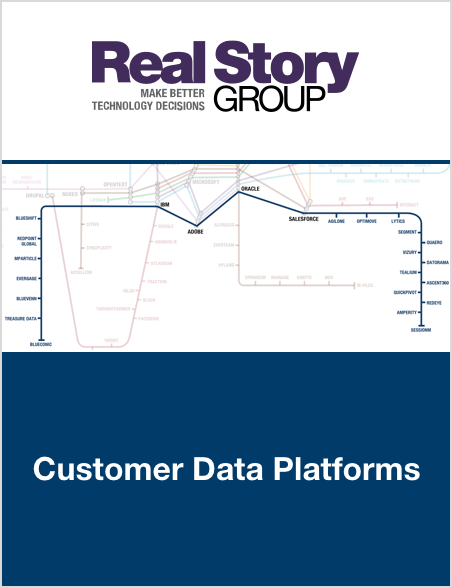Do CDPs Need to Be Marketer Friendly?
It's a measure of the rapid maturation of the CDP marketplace that an open source CDP offering has emerged. Created by longtime commercial open source WCM/Portal vendor Jahia, the Unomi CDP has gotten accepted as an official Apache project after several years of incubation.
A CDP Toolkit
At this point, I would describe Unomi as a CDP toolkit. It provides core services for things like ingest, identity unification, and segmentation, and exposes them via APIs. It bundles a couple connectors, to Salesforce CRM and Mailchimp.
What you won't find, yet, are any business configuration and management interfaces, to define segments, browse profiles, set rules, activate programs and campaigns, view analytics, and all the other things that marketing customer experience (CX) specialists might want to do in a packaged CDP environment.
Jahia has built some of those interfaces for its clients, and has hinted at adding that code to the Unomi project. Doing this right requires really tight product management and I wonder if the Apache model will support that, but first let's address a more fundamental question.
Are CDPs Business Software or Tech Infrastructure?
I can almost hear all of you screaming in reply: "business software!" And from an enterprise customer perspective — the only perspective that matters at RSG — packaged CDPs are almost always business focused. They grew out of a desire by marketers and CX specialists to get better access for themselves to unified customer and prospect records.
However, there are two potential use cases for CDP-as-toolkit.
First, an enterprise may have reasons for wanting to build one themselves. Before packaged CDPs this was the only way to build a central customer data backbone. Today, an enterprise might not trust the CDP packages on offer, or may want to highly customize and run the platform in their own datacenters. (Actually four of the nearly 30 CDP vendors that RSG evaluates do allow you to run their platforms on-premise and fifth as single-tenant cloud PaaS, but that limits your choices.)
I would argue that the typical enterprise should not be in the software-development business, but sometimes it's necessary.
The second use case is a tech vendor in an adjacent marketplace wanting to add CDP services to their platform. They could retrofit Unomi into the back-end of their offering and then attach their existing front end. As an enterprise customer, you should be wary of trojan horse CDPs like this.
The Apache Track Record
I admire the Apache Foundation, but the community track record of sustaining business-facing software isn't as strong as with technical tooling and infrastructure projects.
To be sure, Open Office keeps chugging and Apache JSPWiki seems to have a following (though Apache itself uses the Atlassian Confluence wiki). Lucene/Solr remains an important project, but arguably is more tech infrastructure than business software (it lacked significant business interfaces) and might be getting eclipsed by ElasticSearch, which is a crucial component within Unomi. The Roller blog platform never took off and hasn't been updated in nearly two years. WCM package Lenya has gotten relegated to Apache's quaintly-named "attic."
This makes me predict that Unomi will remain primarily a creature of Jahia. Maybe that's not a bad thing. If CDPs are essentially a marketing or CX platform — albeit one needing a lot of IT intervention — then a more commercial open source model, driven by a primary vendor, will likely work best.
What do you think? Use a button below to share on Twitter or LinkedIn and we can discuss further...









